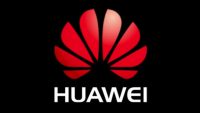Huawei Technologies’ revenue in 2020 Q4 dropped 11.2 percent to 220.1 billion yuan (about $33.6 billion) from a year earlier. For 2020, revenue grew 3.8 percent to a record-breaking 891.4 billion yuan, but the Q4 drop represents how U.S. sanctions inked in September have made it difficult for Huawei to source advanced chips. Huawei revealed it was one of its slowest years ever for revenue growth. Swedish company Ericsson has been the biggest beneficiary, now surpassing Huawei’s cellular equipment sales. However, the company is defending Huawei, citing the importance of free trade.
The Wall Street Journal reports that one of Huawei’s three deputy chairmen, Ken Hu, noted that, “the supply restrictions for our smartphone business has caused us a great impact, and we haven’t been able to see a clear picture in the supply for our smartphones.” He added that the “unfair situation” has “caused a lot of damage to us.”

The company’s telecom infrastructure business has “effectively stalled … [and] smartphone sales plunged.” The company, which also saw revenue drops in “every major region outside of China last year,” has relied on stockpiled parts to build products. Its domestic revenue rose 15.4 percent due to the “rapid build-out of 5G networks.”
IDC reported that, in Q4, “shipments of Huawei devices fell 42 percent … and it was No. 5 in the global smartphone market.” Many analysts expect Huawei to “run out of supplies sometime this year, though its telecom infrastructure business likely can last longer than its smartphone business because it isn’t as heavily dependent on large volumes of cutting-edge chips.”
The Trump administration accused Huawei that its gear could be used “to spy or disrupt networks,” although the Chinese company has denied those allegations. Despite the ban, Huawei saw its consumer business rise 3.3 percent and its enterprise business segment grew 23 percent. The company also increased R&D spending to 142 billion yuan.
Elsewhere, WSJ reports that, despite experiencing growth in its business due to Huawei’s problems, Ericsson chief executive Börje Ekholm is protesting that Sweden has banned Huawei equipment from the country’s 5G networks, even going so far as to seek a law firm to help Huawei fight the ban. He said he is looking out for his country’s interests.
“We depend on free trade,” said Ekholm. “It’s about having access to markets, and that is at the center of what we are.”
The technology Cold War between the U.S. and China forces European companies to pick a side. Worried European business executives point to how, after Australia banned Huawei’s 5G equipment, “the Chinese government restricted imports of Australian wine, beef and other goods.”
Something similar is already happening, as “last week, Chinese mapping and e-commerce apps removed all mention of Swedish fashion giant H&M Hennes and Mauritz AB, essentially erasing it from some of China’s most popular online services.” China-Britain Business Council chair Sherard Cowper-Coles said his organization, which “represents about 500 British organizations that have commercial relations with China,” is pushing the UK government to “maintain commercial engagement” with China.

No Comments Yet
You can be the first to comment!
Sorry, comments for this entry are closed at this time.